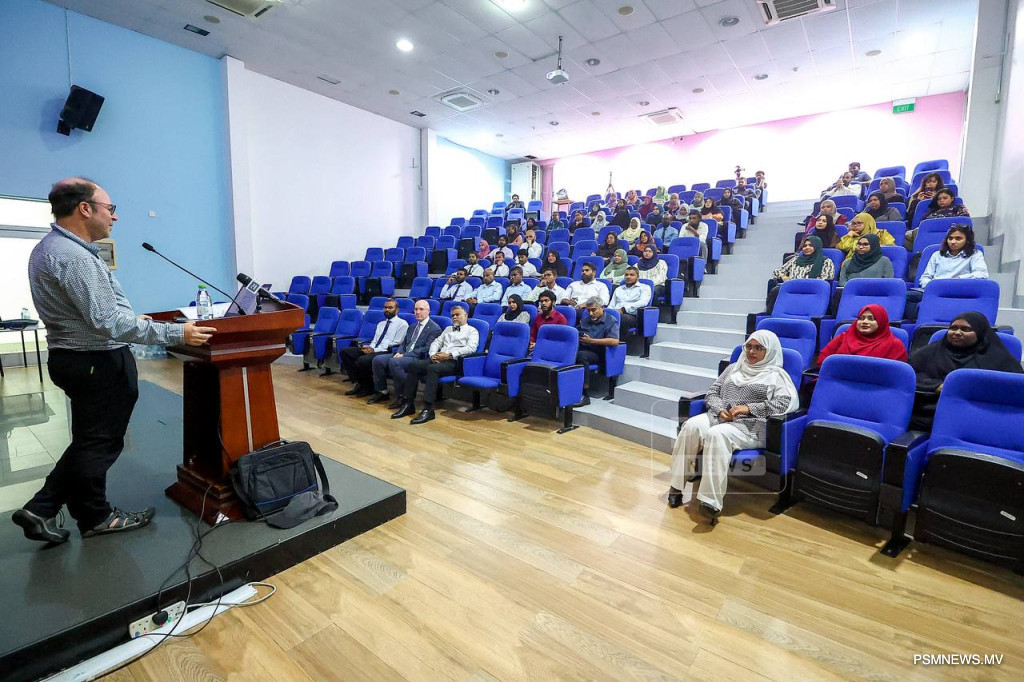
A special seminar on the Evidence Act, which stipulates procedures on evidence collection in both civil and criminal cases, has begun.
The seminar organised by the Prosecutor General’s Office and the Maldives National University (MNU) dubbed “Navigating the Evidence Act” – a deep dive into the Maldivian Evidence Act with Professor Jeremy Gans from the University of Melbourne, Australia, brings together legal minds for critical discussion and capacity building.
Jeremy Gans is a Professor in Melbourne Law School, where he researches and teaches across all aspects of the criminal justice system. He holds higher degrees in both law and criminology. His early research focused on fact-finding in sexual assault trials, the subject of his doctoral thesis and a number of published articles, and criminal investigation, especially the technique of DNA identification. He is the author of a criminal law treatise and a co-author of texts on evidence law and criminal process rights.
The seminar will focus on the ways in which the existing Evidence Act can be further strengthened and legislative familiarisation of relevant officials, PG Office said.
The PG Office said the discussions and lessons learned at the seminar will be important for familiarisation of the current law of evidence in the Maldives and for future use in promoting the legal profession.
The Evidence Act was ratified in July 2022 and came into effect six months after the act was gazetted. The act has replaced the previous Evidence Act, which was implemented in 1976, and the Women’s Testimony Act.
The Evidence Act specifies the procedures to be followed when gathering evidence in civil and criminal proceedings, as well as the processes to be followed when submitting, accepting, and evaluating evidence. It also specifies other evidence-related elements, such as the extent of evidence required to support a claim. One of the primary purposes of the act is to ensure the necessary procedures are detailed in the form of required actions so that the right to a fair trial, as per Article 42 of the Constitution, is satisfied.
